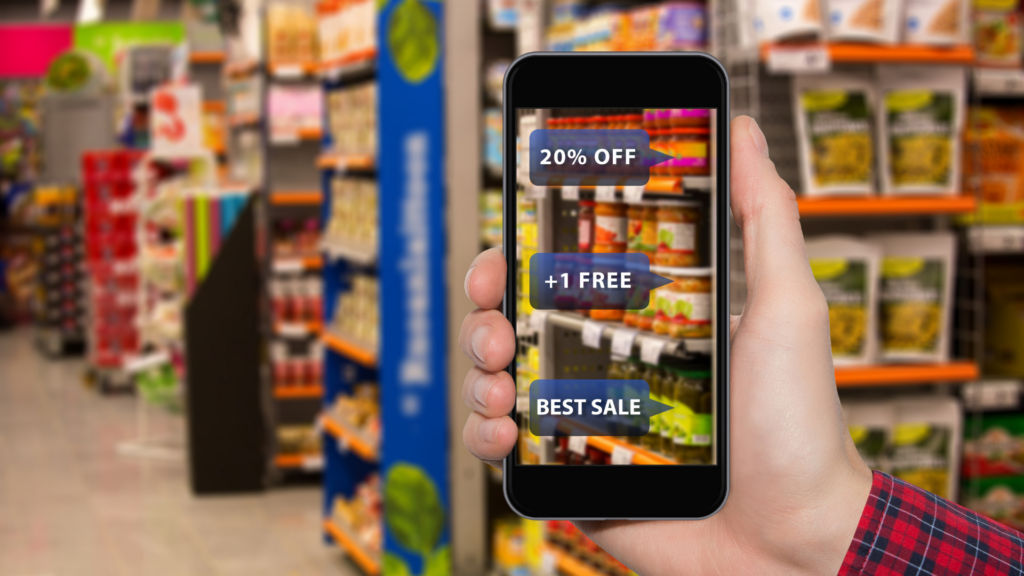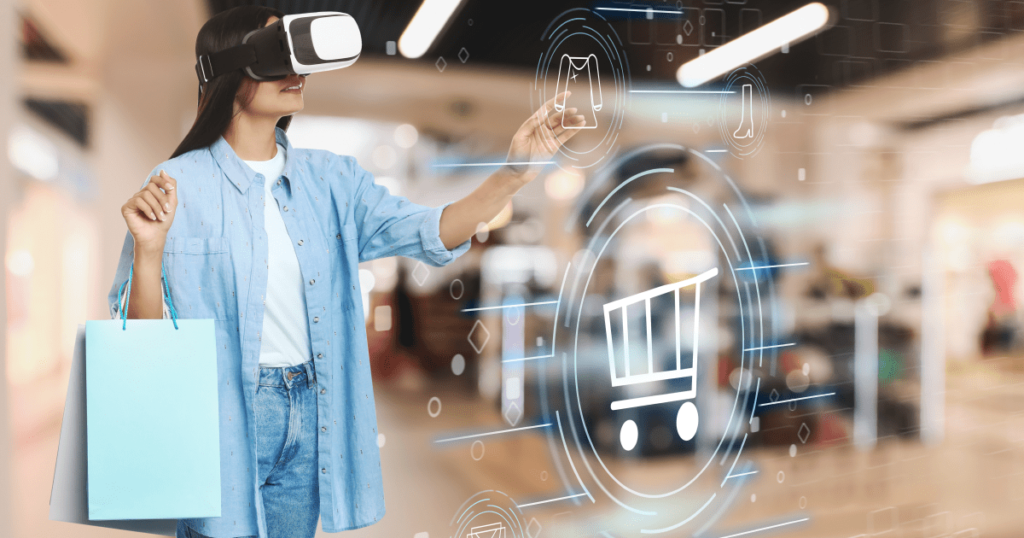Artificial Intelligence (AI) has emerged as a transformative force in various industries, and the retail sector is no exception. As technology advances, AI is reshaping how we shop, creating a more personalized, convenient, and immersive consumer experience. This article will delve into the future of shopping with artificial intelligence and explore the exciting possibilities.
1. Hyper-Personalized Recommendations:
AI-powered recommendation engines are revolutionizing the shopping experience by providing hyper-personalized product suggestions. AI algorithms can accurately predict individual preferences and offer tailored recommendations by analyzing vast customer data, including purchase history, browsing behavior, and preferences. This level of personalization enhances customer satisfaction, increases engagement, and helps consumers discover new products they are likely to love.

Future of Shopping
2. Virtual Shopping Assistants:
Virtual shopping assistants powered by AI are becoming increasingly prevalent, offering shoppers a personalized and interactive experience. These assistants can answer product-related questions, provide real-time recommendations, and make purchasing decisions. By leveraging natural language processing and machine learning, virtual shopping assistants can understand customer queries and preferences, making the shopping process more efficient and enjoyable.
3. Seamless Checkout Processes:
AI is streamlining and simplifying the checkout process, reducing friction points and enhancing the overall customer experience. Automated checkout systems powered by AI can eliminate the need for traditional cashiers and long queues. Customers can purchase by scanning items with smartphones or utilizing smart shopping carts with AI technology. This frictionless checkout experience saves time, improves efficiency, and reduces wait times, leading to higher customer satisfaction.

the Future of Shopping with AI
4. Enhanced Visual Search:
AI’s Visual search capabilities are transforming how consumers discover and purchase products. Instead of relying solely on text-based searches, customers can now use images to find desired items. AI algorithms can analyze images, recognize objects, and provide relevant product recommendations. This technology enables shoppers to find similar products, explore various options, and make informed purchase decisions based on visual preferences.
5. Augmented Reality (AR) Experiences:
Combined with AI, AR technology is revolutionizing how consumers engage with products before purchasing. By overlaying digital information in the real world, AR enables virtual try-ons, product visualizations, and immersive shopping experiences. Customers can virtually “try on” clothing, visualize furniture in their homes, or preview cosmetics on their faces. These interactive experiences bridge the gap between online and offline shopping, boosting consumer confidence and reducing returns.

the Future of Shopping with Artificial Intelligence
6. Supply Chain Optimization:
AI is enhancing supply chain management, optimizing inventory, and improving the efficiency of product delivery. AI algorithms can analyze factors such as customer demand, historical data, and market trends to predict product demand accurately. This enables retailers to optimize inventory, reduce stockouts, and minimize excess inventory. Furthermore, AI-powered logistics and route optimization algorithms can improve last-mile delivery, reducing delivery times and costs while enhancing customer satisfaction.
The Future of Shopping in UAE
The future of shopping in the United Arab Emirates (UAE) is poised to be a remarkable blend of innovation, convenience, and personalized experiences. Technological advancements and the UAE’s drive for excellence are set to revolutionize how people shop. One of the key developments on the horizon is the widespread integration of augmented reality (AR) and virtual reality (VR) technologies. Customers can virtually try on clothes, explore products, and visualize their purchases in real-time, all from the comfort of their homes. Additionally, the UAE’s commitment to sustainability will lead to a surge in eco-friendly practices, emphasizing green packaging, renewable energy, and locally sourced products.

Moreover, artificial intelligence (AI) will significantly enhance the shopping experience as smart assistants and chatbots become more intelligent, providing personalized recommendations and seamless customer service. Furthermore, the rise of e-commerce will continue to thrive, with online platforms offering faster delivery options and streamlined payment methods. In-store experiences will also transform by integrating interactive displays, smart shelves, and cashier-less checkout systems. The UAE’s vision for the future of shopping is a harmonious fusion of cutting-edge technology, sustainability, and consumer-centric experiences, making it an exciting era for retailers and shoppers alike.
Conclusion:
The future of shopping with artificial intelligence is promising and transformative. From hyper-personalized recommendations and virtual shopping assistants to seamless checkouts and enhanced visual search, AI is revolutionizing the retail landscape. By leveraging AI technologies, retailers can create more engaging and personalized shopping experiences, streamline operations, and build stronger customer relationships. As AI continues to evolve, we can expect further innovations to reshape how we shop, enhancing convenience, personalization, and overall customer satisfaction.




